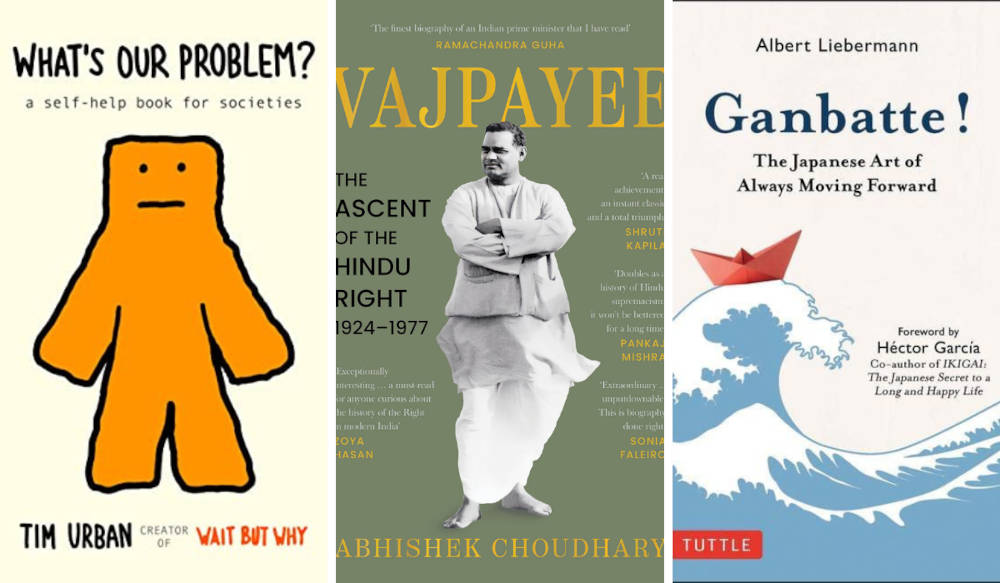August 5, 2023
Good morning,
‘How time flies’ sounds like a cliche! But that’s what it feels like. Wasn’t it just the other day that we ushered in 2023? And here we are, into the first weekend of the eighth month of the year. Last month we had to remind ourselves to do a mid-year check-in with each of us on the team. The exercise is always interesting because it helps calibrate our personal compasses: What did you hope to do at the start of the year? Where are you now? Do you need to make any course corrections? What do you plan to do for the months that are left this year? What’s playing on your mind? What has stayed with you?
While on that last one, Monday to Friday, we cull a book extract that we believe is relevant and will add value to our subscribers’ day. Since we have just gotten into August, we asked ourselves, if we were asked to pick just seven books—one for each month of the year so far—what would we pick? Here’s what we chose.
We’ve included a short extract from each book as well here.
Ganbatte! by Albert Liebermann
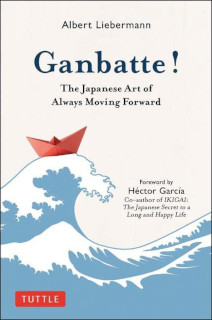
The Great Wave off Kanagawa is one of the most emblematic works of art of all time. It was created by the artist Katsuhika Hokusai, an expert in ukiyo-e (Japanese prints).
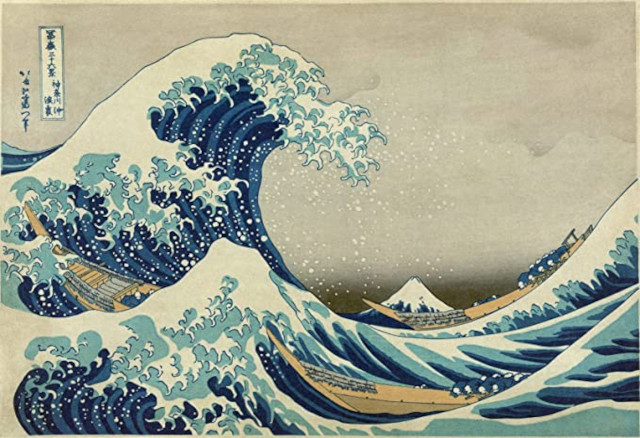
“Hokusai’s print has captured the imagination not just of the Japanese but of the entire world. The rowing boats are battling the sea’s fury with Mount Fuji observing on the horizon. The whiteness of Fuji’s snow contrasts with the whites and greys of the foaming waves, which look like they are leaping upon the sailors with sharpened claws.
What happens moments after the wave breaks? Will they be shipwrecked? Will they manage to change course and skillfully outsmart the wave? If they are to stand any chance of surviving, they cannot freeze, but must row, hoping they can manage to ride the top of the wave to the safety of the next trough.
The Great Wave off Kanagawa represents the spirit of Japan’s ganbatte; the sailors don’t give up, but row, putting all their effort into moving forward in order to live.” (Sent on Feb 6, 2023)
Office Shock, by Bob Johansen
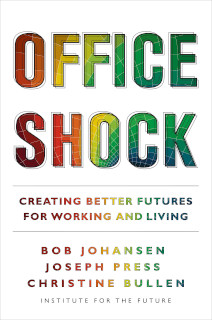
One of the most compelling conversations we had this year was with the futurist Bob Johansen around his book Office Shock. There was much he spoke about on the future of work and office. For instance, “We know from the neuroscience of trust now that trust is processed in one, the rational portion of our brain and mistrust is processed by the emotional portion of our brain. And social media, particularly in polarised times, is really good at spreading mistrust or distrust. Mistrust is now the default emotion. And in a world where mistrust is the default emotion, you can see why some traditional managers say, ‘Well, I only know if people are working, if I see them at their desk.’
To prepare to engage with him, we spent time on his earlier book Full Spectrum Thinking. It was packed with insights and we had shared some of it in extracts sent on January 13, 2023.
“As a futurist trained as a social scientist, I’d like to see scholars, physicians, and pundits view digital media as opportunities for cross-generational learning as well as potential trouble. Instead, many voices of authority are just focusing on the problems and dilemmas (and I agree that there are many problems). Those of us who are not digital natives (and I include myself, although I had an identity on the internet’s predecessor beginning in 1972) have a lot to learn from young people. We digital immigrants all need true digital native mentors. Certainly, we have something to offer as digital immigrants, but I believe we have a lot to learn from the true digital natives.
Digital immigrants (all of us who are 25 or older in 2020) will have a chance to play the wisdom game across generations. Age does matter and, as we advance in age, we can learn to see things in a deeper way. Younger is not necessarily better, but neither is older.”
Vajpayee: The Ascent of the Hindu Right, by Abhishek Choudhary
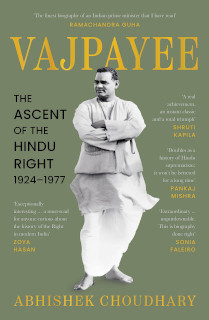
Volume 1 of this biography of the BJP’s first prime minister Atal Bihari Vajpayee by Abhishek Choudhary is a cracker. And we said so in our edition on May 24, 2023. Choudhary traces the narrative of a man who is thought of as a lamb in most circles, but was actually a hawk. His talent was spotted early on by India’s first deputy prime minister, Sardar Patel. While Vajpayee had joined the RSS, Patel could have finished the organisation then, but he chose not to, and offered a young Vajpayee some advice instead.
“As Nehru and Patel had shown in Kashmir, a determined Indian state was capable of crushing armed aggression. For now the Sardar had assigned himself higher priorities—such as settling the geography of Kashmir and Hyderabad and tackling the rising communist threat. Even though he was aware of the RSS sabotaging the administration, the deputy PM only chided them mildly.
Speaking in Jaipur on 17 December, he appreciated the enthusiasm of young men, but that should be diverted into constructive channels. There is a great deal to be done to make India militarily strong. Very substantial industrial effort must back the army. All that cannot be achieved by the lathis of the Sangh which are being used for breaking the heads of a handful of Muslims.”
Babasaheb by Savita Ambedkar
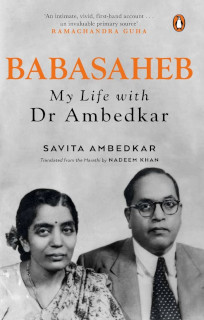
Just before we had sat down to read yet another fascinating biography, Becoming Babasaheb by Aakash Singh Rathore. It is Volume 1 and reviewers have called it the most definitive book on one of the most towering personalities in contemporary India. That was when a little known biography of Dr BR Amedbkar by his second wife Savita Ambedkar was pointed to us. She was a doctor and had gotten to know him when he was of frail health and thinking hard of a free and secular India on the one hand, and fighting personal demons on the other.
“Despite having acquired degrees from world-renowned universities, all that Doctor Saheb received in return was scorn and dishonour. He joined the Baroda job in the last week of January 1913. Although he occupied a high position in the Secretariat, the fact that he was an untouchable resulted in not only senior and junior officers, but even the peon class refusing to cooperate with him. To avoid getting defiled by his touch, even the peons used to toss files at him from a distance. He was not allowed to drink water from the earthen pitcher that was kept in the office for public use.”
A New Way to Think, by Roger L. Martin
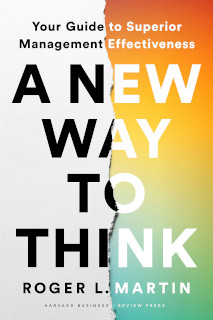
The Founding Fuel community is familiar with Roger L Martin, former Dean of the Rotman School of Management at the University of Toronto. He was a part of BITSoM’s Beacon Festival, that Founding Fuel curated. You can watch the conversation here.
In his new book, he argues that we have to accept that execution is the same as strategy, because the world is complex and uncertain, and every employee in your organisation makes choices that determine the course of your business.
He writes: “The idea that execution is distinct from strategy has become firmly ensconced in management thinking over the past two decades. Where the idea comes from is not certain, but in 2002, in the aftermath of the dot-com bubble, Jamie Dimon, now CEO of JPMorgan Chase, opined, ‘I’d rather have a first-rate execution and second-rate strategy any time than a brilliant idea and mediocre management.’ In the same year, Larry Bossidy, former AlliedSignal CEO, coauthored the bestselling book Execution: The Discipline of Getting Things Done, in which the authors declared, ‘Strategies most often fail because they aren’t well executed.’”
The problem is the mental image we carry about strategy and execution. Martin says: “The metaphor that informs our understanding of this process is that of the human body. The brain (top management) thinks and chooses, and the body (the organisation) does what the brain tells it to do. Successful action is made up of two distinct elements: formulation in the brain and execution through the body.”
If we think about it, feel it in our guts and every muscle and sinew, we will know that it's not true even with human beings. The reality is too complex for such distinctions. Martin goes on to write: “The strategy-execution model fails at multiple levels of the organisation, not just at the front line. Executives, too, are constrained—by the boards, shareholders, regulators, and countless others that dictate to them. Everyone from the top of the organisation all the way down to the very bottom makes choices under constraints and uncertainty.”
If we still believe that strategy is different from execution, we might be damaging our organisations. Martin writes: “So if we can’t draw a line in the organisation above which strategy happens and below which execution does, what is the use of the distinction between strategy and execution, between formulation and implementation? The answer is none at all. It is a pointless distinction that in no way helps the organisation. In fact, it does great damage to the corporation.”
What's Our Problem? by Tim Urban
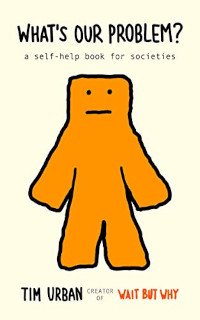
In our view, Tim Urban’s What’s Our Problem is one of the most important books to come out this year. Yet, we don’t think it made a splash outside of some circles. It could be because it dared people to think beyond their ideological groups, which is becoming increasingly difficult these days.
Here are a few useful hacks on how to deal with a world that is increasingly becoming polarised. He writes:
Think about your identity. The truth is, you’re not a progressive or a conservative or a moderate or radical or some other political noun. Those are words for ideas, not people. Your mind is way too weird and particular to be locked in a noun or adjective prison. Attaching a political category to your identity is a heavy piece of baggage to carry around, and putting it down makes learning and exploring much easier and less stressful.
Think about people or groups you hate. Who are you disgusted by? Remind yourself that this is almost always a delusion of your Primitive Mind. You certainly don't have to like everybody. But when you’re disgusted by a person or a group of people, you've gotten swallowed up by human craziness. When you find yourself here, try one of these exercises to snap yourself out of it:
Think small. Imagine the little details of the life of the person you’re hating: the sticky note they leave in their kid’s lunchbox, the calendar on their wall with little plans written in the squares, the leftovers in their fridge from last night’s home-cooked meal. Like you, everyone else is ultimately just trying to be happy.
Think big. Read about the universe. Nothing makes hatred seem more ridiculous than internalising how vast time and space are. Doing so makes me want to turn to anyone who will listen and hug them and say, “We both exist! On the same tiny planet at the same exact time! Hi!”
Think outside yourself. Every person has a unique childhood, a unique set of traumas, unique mental health issues. There are many people not lucky enough to be born as intellectually or emotionally intelligent as you were, not lucky enough to have an upbringing like yours. You have no idea what kind of grief, heartbreak, or other misfortune another person may be suffering through. However awful someone is acting, it would probably make a lot more sense if you could spend a few minutes inside their brain.”
Small is Beautiful, by E.F. Schumacher
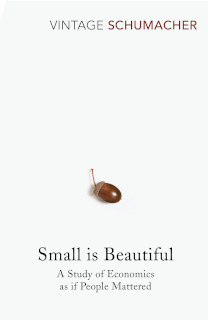
It's a classic that we keep going back to because the ideas are still relevant. When we think about technology in India, we measure our progress by looking at the gap between technology in rich countries and the technology here. In his book, Schumacher makes us think harder about this approach.
He writes: “The type of work which modern technology is most successful in reducing or even eliminating is skilful, productive work of human hands, in touch with real materials of one kind or another. In an advanced industrial society, such work has become exceedingly rare, and to make a decent living by doing such work has become virtually impossible. A great part of the modern neurosis may be due to this very fact, for the human being, defined by Thomas Aquinas as a being with brains and hands, enjoys nothing more than to be creatively, usefully, productively engaged with both his hands and his brains. Today, a person has to be wealthy to be able to enjoy this simple thing, this very great luxury: he has to be able to afford space and good tools; he has to be lucky enough to find a good teacher and plenty of free time to learn and practise. He really has to be rich enough not to need a job; for the number of jobs that would be satisfactory in these respects is very small indeed.”
Later in the chapter, he writes: “As Gandhi said, the poor of the world cannot be helped by mass production, only by production by the masses. The system of mass production, based on sophisticated, highly capital-intensive, high energy-input dependent, and human labour-saving technology, presupposes that you are already rich, for a great deal of capital investment is needed to establish one single workplace. The system of production by the masses mobilises the priceless resources which are possessed by all human beings, their clever brains and skilful hands, and supports them with first-class tools. The technology of mass production is inherently violent, ecologically damaging, self-defeating in terms of non-renewable resources and stultifying for the human person. The technology of production by the masses, making use of the best of modern knowledge and experience, is conducive to decentralisation, compatible with the laws of ecology, gentle in its use of scarce resources, and designed to serve the human person instead of making him the servant of machines. I have named it intermediate technology to signify that it is vastly superior to the primitive technology of bygone ages but at the same time much simpler, cheaper, and freer than the super-technology of the rich. One can also call it self-help technology, or democratic or people’s technology — technology to which everybody can gain admittance and which is not reserved to those already rich and powerful."
